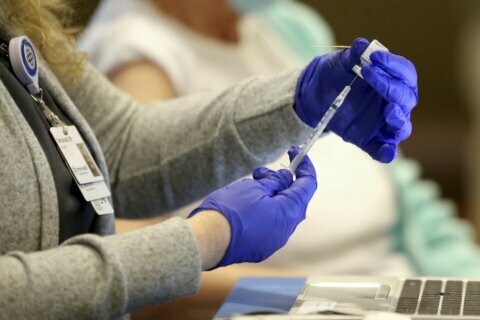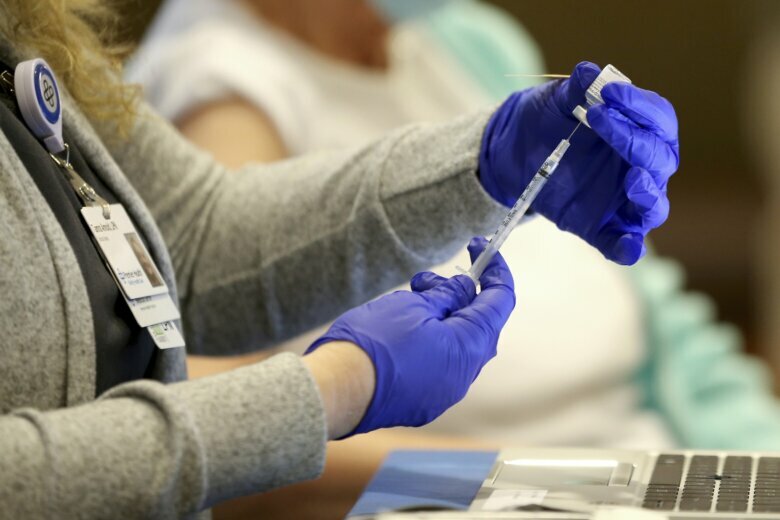
Johns Hopkins held a briefing on the coronavirus Friday, focusing on what’s next for the vaccine rollout and why the public should still be wearing a mask.
“We’re still seeing many, many more hundreds of thousands of cases per day than we would like,” said Lainie Rutkow, a professor at the Johns Hopkins Bloomberg School of Public Health.
“The month of January is tracking to be the deadliest month in the pandemic in the U.S.,” she said, adding that vaccine distribution is way behind schedule.
“No state has vaccinated more than 2% of its population,” Rutkow said.
Brian Garibaldi, medical director of the Johns Hopkins Biocontainment Unit, said that while the vaccines are safe and effective, it’s going to be a long time before a majority of the country gets it.
He said that this means everyone should still be social distancing, washing their hands and wearing a face mask. “For the coming months, and for the foreseeable future, we have the ability to control the spread of the virus with measures that we know work,” Garibaldi said.
Bill Moss, executive director of the International Vaccine Access Center, said vaccine rollout is slow. He’s hopeful the new administration can help.
“We still have enormous delivery challenges,” Moss said. “What the Biden plan lays out is really simplifying the allocation and distribution process, creating as many venues as possible to deliver the vaccine.”
Garibaldi added that many health systems that have been overwhelmed during the COVID-19 pandemic are continuing to be overwhelmed, with no clear end in sight.
“We continue to, unfortunately, see here in Maryland near record highs of the number of patients who are hospitalized on a daily basis with coronavirus,” he said.
Garibaldi also said that the increase of patients can be dangerous for hospitals, as resources continue to run out. “There’s emerging data now that when health systems are overwhelmed, that leads to worse outcomes among patients, particularly those who get admitted to the intensive care unit,” he said.
Additionally, Garibaldi said those patients who may have had minor symptoms could be seeing symptoms pop up now from lingering effects of the disease.
“The other thing that I worry about that we’re also seeing is that even patients who are surviving from their infection, you know, have residual effects,” Garibaldi said. “And this is true of what we call long-haulers, people who maybe even didn’t have severe disease but have chronic symptoms months out.”
- Sign up for WTOP alerts
- Latest coronavirus test results in DC, Maryland and Virginia
- Coronavirus vaccine FAQ: What you need to know
- Federal supply remains biggest barrier to vaccination in Virginia, official says
- ‘Need to do better’: Fauci on WHO, COVID-19 variants, vaccines and more
- DC leaders express confidence in plan to get kids back in classroom
Looking for more information? D.C., Maryland and Virginia are each releasing more data every day. Visit their official sites here: Virginia | Maryland | D.C.









